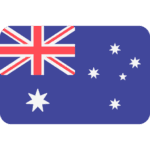Coffee Blog
The Secret Ingredient: A Guide to Crafting Perfect Coffee Water at Home

You’ve invested in a great grinder, sourced freshly roasted beans, and perfected your brewing technique. Yet, your coffee still tastes flat, dull, or just a little… off. What’s the missing piece? More often than not, the answer is right there in your kettle: water.
Water constitutes approximately 98% of a cup of coffee. It’s not just a passive solvent; it’s an active participant in the extraction process. The minerals dissolved in your water act as keys, unlocking the delicious flavors—fruity acids, rich sugars, and complex caramel notes—trapped within the coffee grounds. Using poor water doesn’t just make bad coffee; it disrespects good beans.
This guide will demystify the science of water for coffee and provide you with simple, practical methods to create your own premium brewing water at home.
Why Your Tap Water Isn’t Good Enough (Probably)
For most coffee lovers, tap water is the default. Unfortunately, it’s often the biggest obstacle to a great cup. Here’s why:
-
Chlorine/Chloramine: Municipal water is treated with these chemicals to make it safe for drinking. However, they impart harsh, medicinal flavors that can overpower the subtle nuances of coffee.
-
Unknown Mineral Content: Tap water’s mineral composition is a mystery. It can be too “hard” (high in minerals like calcium and magnesium) or too “soft.” The ideal balance for extraction is somewhere in the middle.
-
Impurities and Off-Flavors: Beyond minerals, tap water can contain various sediments, metals, and organic compounds that contribute unwanted flavors.
While a simple carbon filter (like a Brita pitcher) can remove chlorine and some impurities, it doesn’t allow you to control the mineral content, which is the true secret to optimization.
The Science Simplified: What Minerals Do
Two minerals are primarily responsible for facilitating extraction:
-
Magnesium (Mg²⁺): Often described as a “sharp” extractor, magnesium is particularly effective at pulling bright, fruity, and acidic flavors from coffee. It makes notes like citrus, berry, and stone fruit pop.
-
Calcium (Ca²⁺): This ion is a “round” extractor. It excels at pulling out heavier, sweeter, and more chocolatey or nutty flavors, contributing to a coffee’s body and mouthfeel.
But it’s not just about what’s present; it’s also about what’s not. Sodium (Na⁺) and Bicarbonate (HCO₃⁻) play supporting roles. Sodium can enhance sweetness and mouthfeel at low levels, while bicarbonate acts as a buffer, neutralizing acidity. Too much bicarbonate, however, will make your coffee taste flat and dull, muting its vibrant acidity.
The goal isn’t to maximize mineral content but to find the perfect equilibrium where both magnesium and calcium can work in harmony to create a balanced, flavorful, and clear extraction.
The Blueprint: Understanding Coffee Water Recipes
The specialty coffee world has converged around a general range for ideal water, largely based on the work of the Specialty Coffee Association (SCA). Their guidelines suggest:
-
Total Hardness (CaCO₃): 50-175 ppm (parts per million)
-
Alkalinity (CaCO₃): 40-75 ppm
A famous and excellent starting point is the “Water Recipe” developed by barista champion Maxwell Colonna-Dashwood and Dr. Christopher Hendon, a computational chemist, as published in their book Water for Coffee. One of their most popular recipes aims for:
-
Total Hardness: 80-100 ppm
-
Alkalinity: 40-50 ppm
This provides enough mineral content for excellent extraction without overwhelming the coffee’s delicate flavors.
Method 1: The DIY Purist’s Approach (Starting from Zero)
This method involves building your water from the ground up using distilled or reverse osmosis (RO) water, which is essentially a “blank slate” with virtually no mineral content. This gives you total control.
What You’ll Need:
-
Distilled or RO Water: You can buy this by the gallon at any grocery store.
-
Epsom Salt (MgSO₄·7H₂O): This provides Magnesium.
-
Baking Soda (NaHCO₃): This provides Bicarbonate for buffering.
-
A Digital Scale that can measure to 0.01 grams.
-
Two clean containers for mixing concentrates.
Step 1: Make Concentrate Solutions
Making concentrates makes it easy to dose tiny amounts of minerals into a large volume of water.
-
Magnesium Concentrate: Add 7.5g of food-grade Epsom Salt to 250ml of distilled water. Seal and shake until fully dissolved.
-
This is your “Hardness” concentrate.
-
-
Bicarbonate Concentrate: Add 4.25g of baking soda to 250ml of distilled water. Seal and shake until fully dissolved. Note that baking soda does not dissolve as easily; gentle warming and shaking will help.
-
This is your “Alkalinity” concentrate.
-
Step 2: Dose into Your Brewing Water
Now, for every 1 liter of distilled water, you will add:
-
1.25ml of your Magnesium Concentrate
-
0.75ml of your Bicarbonate Concentrate
Use a small syringe (available at any pharmacy) to measure these tiny volumes accurately. Add them to your liter of distilled water and shake well. You now have a liter of perfectly mineralized water, ready to brew with.
Method 2: The Practical Compromise (Improving Filtered Water)
The purist method is fantastic, but it can feel like a chemistry project every time you want to make coffee. A fantastic middle ground is to use a popular third-wave water product.
What You’ll Need:
-
Distilled or RO Water (same as above).
-
Pre-Mixed Mineral Packets: Products like Third Wave Water or Perfect Coffee Water are a game-changer. They contain precisely measured blends of magnesium, calcium, and bicarbonate salts, ground into a powder.
The Process:
-
Buy a gallon of distilled water.
-
Open the cap and pour in one entire packet of minerals.
-
Recap the bottle and shake vigorously for 60 seconds to ensure everything is dissolved.
That’s it. You now have a full gallon of water optimized for coffee, consistent every single time. It’s incredibly simple, relatively inexpensive per gallon, and eliminates any measuring or mixing on your part.
Method 3: The Simple Filter Upgrade
If both of the above methods seem like too much work, the absolute minimum you should do is improve your filtration.
-
Pitcher Filters (Brita, etc.): Better than straight tap water. They remove chlorine and some sediments but don’t significantly alter the overall mineral hardness. This is the bare minimum.
-
In-Line Filter Systems: For serious home brewers, under-sink or countertop systems like the BWT Bestmax Premium or AquaCreama are excellent investments. They filter out impurities and use ion exchange to replace calcium ions with magnesium ions, effectively “magnesizing” your water. This gives you the benefits of magnesium’s superior extraction right from your tap.
Experimentation and Refinement: Making It Your Own
Your perfect water is not an absolute; it’s a variable you can tune to your taste and your beans.
-
For Light Roasts & African Coffees: These beans are prized for their bright acidity and complex fruit notes. Try slightly upping the magnesium content (a little more Epsom salt concentrate) to enhance these sharp, bright flavors.
-
For Dark Roasts & Indonesian Coffees: These beans offer deeper, chocolatey, and nutty notes. A recipe with a slightly higher bicarbonate content can help round out the acidity and emphasize that body and sweetness.
-
If Your Coffee Tastes Sour/Sharp: Under-extraction can be a water problem. Your water may have too low a mineral content to extract effectively. Try a recipe with slightly higher overall hardness.
-
If Your Coffee Tastes Bitter/Dull: Over-extraction or muting can occur if your water’ alkalinity is too high, blunting the acids that provide clarity and liveliness. Try a recipe with slightly lower bicarbonate.
Keep a notebook. Change one variable at a time and taste the difference. You will be amazed at how a simple mineral adjustment can make a Kenyan coffee taste like a burst of blackberries or a Colombian coffee taste like rich milk chocolate.
Conclusion: Your Next Level Cup Awaits
Water is the silent, often overlooked pillar of great coffee. By taking control of it, you complete the trinity of quality: beans, grind, and water. Whether you go full mad scientist with concentrates, opt for the elegant simplicity of a pre-mixed packet, or invest in a premium filter, you are taking a definitive step toward the best coffee of your life.
You’ve done the work to understand your grinder and brewer. Now, give them the partner they deserve. Craft your water, and unlock the full potential in every cup.



 Bee Mugs
Bee Mugs Bird Mugs
Bird Mugs Bunny Mugs
Bunny Mugs Cat Mugs
Cat Mugs Goat Mugs
Goat Mugs Horse Mugs
Horse Mugs Lion Mugs
Lion Mugs Monkey Mugs
Monkey Mugs Moose Mugs
Moose Mugs Owl Mugs
Owl Mugs Sheep Mugs
Sheep Mugs Snail Mugs
Snail Mugs Turtle Mugs
Turtle Mugs Unicorn Mugs
Unicorn Mugs
 Engagement Mugs
Engagement Mugs Retirement Mugs
Retirement Mugs St Patrick’s Day Mugs
St Patrick’s Day Mugs Thank You Mugs
Thank You Mugs
 Boss Mugs
Boss Mugs Christmas Mugs
Christmas Mugs Colleague Mugs
Colleague Mugs Dad Mugs
Dad Mugs Grandad Mugs
Grandad Mugs Grandma Mugs
Grandma Mugs Husband Mugs
Husband Mugs Lawyer Mugs
Lawyer Mugs Nurse Mugs
Nurse Mugs Sarcastic Mugs
Sarcastic Mugs Uncle Mugs
Uncle Mugs Wife Mugs
Wife Mugs
 Fourth of July Mugs
Fourth of July Mugs Halloween Mugs
Halloween Mugs Thanksgiving Mugs
Thanksgiving Mugs Valentines Day Mugs
Valentines Day Mugs
 Amsterdam Mugs
Amsterdam Mugs Barcelona Mugs
Barcelona Mugs Berlin Mugs
Berlin Mugs Chicago Mugs
Chicago Mugs Dubai Mugs
Dubai Mugs London Mugs
London Mugs Paris Mugs
Paris Mugs Rome Mugs
Rome Mugs Sydney Mugs
Sydney Mugs Tokyo Mugs
Tokyo Mugs Toronto Mugs
Toronto Mugs
 Aunt Mugs
Aunt Mugs Boss Mugs
Boss Mugs Boyfriend Mugs
Boyfriend Mugs Co-Worker Mugs
Co-Worker Mugs Couples Mugs
Couples Mugs Gamer Mugs
Gamer Mugs Girlfriend Mugs
Girlfriend Mugs Nanny Mugs
Nanny Mugs Sister Mugs
Sister Mugs Teachers Mug
Teachers Mug
 Baseball Mugs
Baseball Mugs Fishing Mugs
Fishing Mugs Football Mugs
Football Mugs Golf Mugs
Golf Mugs Rugby Mugs
Rugby Mugs Soccer Mugs
Soccer Mugs Tennis Mugs
Tennis Mugs
 Best Man Mugs
Best Man Mugs Bridesmaids Mugs
Bridesmaids Mugs Father of the Bride Mugs
Father of the Bride Mugs Groomsmen Mugs
Groomsmen Mugs Matron of Honor Mugs
Matron of Honor Mugs
 Inspirational Mugs
Inspirational Mugs Offensive Mugs
Offensive Mugs Sexy Mugs
Sexy Mugs